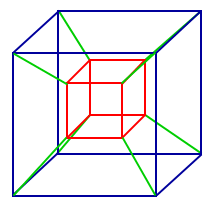If you know about complex numbers, you will be able to appreciate one of the great unsolved problems of our...
Continue reading...prime
Lucas’ Theorem
Lucas’ Theorem: If p is a prime number, and N has base p representation (aj,…,a1,a0) and k has base p...
Continue reading...Sum of Cubes and Beyond
We saw this wonderful identity in Sum of Cubes: 13 + 23 + … + n3 = (1 + 2 + … + n)2. Hence the set of numbers {1,2,…,n} has the...
Continue reading...Sums of Two Squares
Which whole numbers are expressible as sums of two (integer) squares? Here’s a theorem that completely answers the question, due...
Continue reading...All Numbers are Interesting
There are clearly many interesting whole numbers. For instance, 2 is the only even prime number, 3 is the first...
Continue reading...Fibonacci GCD’s, please
Fibonacci numbers exhibit striking patterns. Here’s one that may not be so obvious, but is striking when you see it....
Continue reading...Sum of Prime Reciprocals
It is a well-known fact that the harmonic series (the sum of the reciprocals of the natural numbers) diverges. But what about...
Continue reading...How many Primes?
Are there infinitely many primes? We’ll give a proof, due to Euclid, to show that there must be infinitely many primes....
Continue reading...Gaps in Primes
We know there are infinitely many primes, so are many interesting questions you can ask about the distribution of primes, i.e., how...
Continue reading...Fermat’s Little Theorem
Fermat’s little theorem gives a condition that a prime must satisfy: Theorem. If P is a prime, then for any...
Continue reading...
